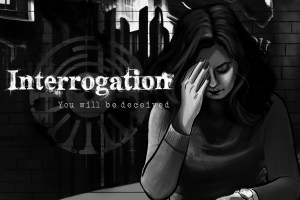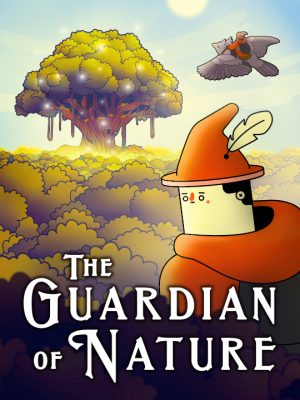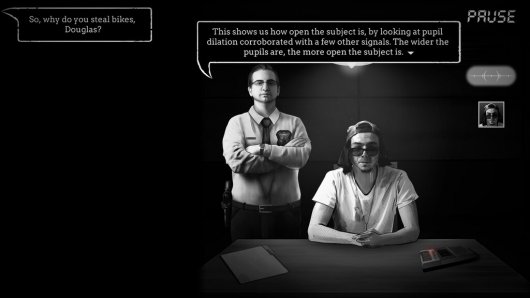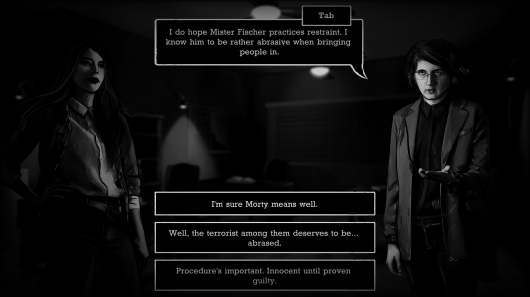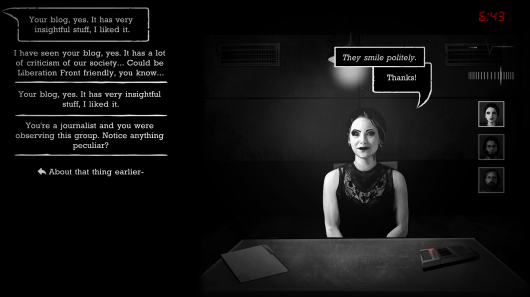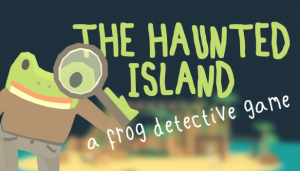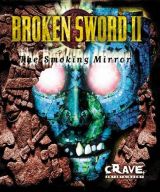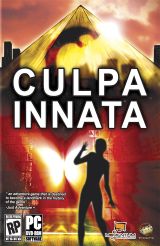Review for Interrogation: You will be deceived
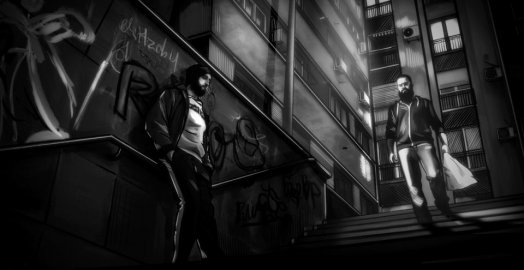
Rather than scouring crime scenes, Interrogation: You will be deceived sees you play as an unseen, unnamed detective trying to break into the murky world of an underground terrorist group by gaining information through increasingly difficult – you guessed it – interrogations. But contrary to what the title says, don’t be deceived: whilst there are paragraphs of text to read, this isn’t a slow-burning interactive novel. Select the right questions and your suspect will slowly start to crack, but stumble once or twice in the face of stubborn resistance, especially in the game’s harder mode, and be prepared to reboot your case and ask better questions next time.
What first strikes you – and thankfully, despite the plentiful opportunities to get violent, it’s not a fist – is its eye-catching graphics. Often when this gets mentioned in game reviews, it’s due to a title’s colourful 3D landscapes. That’s not the case here: its colour palette is very much of the noir-styled 2D black and white variety. But for a game that sees you rely as much on the visual clues of the suspects you’re interrogating as on what they’re saying, developers Critique Gaming have gone to great lengths to capture every flicker of fear and doubt on their faces. It’s indicative of Interrogation’s ambition as a whole, as alongside simple questioning there’s also a budget to manage, a team to build, and many more strategy and RPG-lite elements. Lengthy dialogue and punitive time limits near the end aside, all of these aspects come together to form a thrilling game of cat and mouse, just as happy to pose questions as it is to resort to violence.
After a brief but useful tutorial to go over the game’s mechanics, you start your intrepid career as an interrogator extraordinaire on a “normal” police job – a burglary’s gone very wrong (read: turned into a murder) and you have to interview the suspect and the victim’s husband to find out what happened. As you might expect, things aren’t quite as they first appear, and as you delve further into the husband’s backstory the terrorist group “The Liberation Front '' is mentioned. It turns out this mysterious gathering is gaining support amongst the country’s lost and disenfranchised, urging people to take matters into their own hands. Naturally your boss is worried, and so using the information you’ve already gathered, you’re made the head of a new task force dedicated to learning more about the dangerous Front and infiltrating their membership.
The rest of the game sees you trying to unmask the rebels’ shady leaders and stop multiple threats of violence through a series of intense interrogations of the group’s potential affiliates and informers. At the beginning you can choose either the “Challenge” or “Adventure” mode – the latter an easier version played more for the story, where you’re less likely to need to replay interrogations, and suspects are more inclined to offer up confessions quicker. Choosing “Challenge” mode makes your question periods more intense as suspects will require more persuasion to give up their info, and the time allotted in timed interrogations is often punishingly short.
The developers have made no secret that they don’t intend to give players an easy ride, and that they want it to feel like a real-life interrogation where suspects aren’t going to be willing to tell you things straight off the bat. Fail a round by running out of time or resorting to violent measures too often and you’ll have to restart that whole section again. This got a little annoying later on when interrogations became very complex with multiple suspects and story strands to uncover. The brutal time limits meant I ended up skimming through the many paragraphs of text to find the one question that would unlock fresh ones, rather than taking in each revelation and deducing what I needed to ask next. It feels like a sort of middle ground in between the punitive and simplistic modes might have been ideal, but for the most part “Challenge” mode adds plenty of excitement to make it worthwhile, with minor frustrations only setting in during the game’s final few segments, when you at least have better gotten to grips with the game’s mechanics.
Before each session you’re given a file that fills you in on details of the case as well as the person or people being brought in for questioning. Once you’ve had your fill of reading, you can arrange to have your suspect(s) seated across from you. You start with several topics to delve into on the left-hand side of the screen, including the “accusation question” in red, which is only worth using when you think your suspect is close to giving something crucial away. New questions arising through information gathered from the suspects during interrogation are displayed in yellow. The interface does a good job of helping you keep track of how far you likely have to go before your suspect cracks. There’s a pupil dilation monitor which tells you how open each person is feeling, and a heart rate monitor to show when they’re scared. The key to successfully completing a case is to decide whether empathy or fear is a better approach for each person, either by intimidating them, becoming personal, or catching them in contradictions.
You can even go full bad cop and torture your suspects if you feel like they’re giving you the slip. At any point you can decide to stop the tape recorder and select from options such as slamming your interrogatee against the wall, or even electrocuting them. The brutal sound of screams and moans from your suspect that accompany these actions are deeply unpleasant and very affecting to experience. There’s no voice acting in Interrogation, so aside from some tension-inducing background music, these startled screams are one of the few things you’ll hear.
Be warned, however: employ too much aggression and your counterpart may pass out, and more generally your public approval rating may go down. There’s little indication of what the consequences might be if it hits rock bottom, but later there’s a creative scene where you yourself are put under interrogation, during which any past indiscretions like a fondness for good ol’ torturing may pop up. In this way, the game manages to turn what could have been quite a gratuitous inclusion into a more nuanced, mature discussion about how far is too far to get the answers you need when deadlines and sometimes lives are at stake.
Interrogation works hard to make each question period feel new and fresh. You might be up against the clock to find out the location of a bomb that’s about to go off, or trying to discover the password for a secret server before the logins get changed and your way further into the terrorist organisation is lost forever. Alongside these are some surprisingly in-depth attempts at strategy and even RPG elements. For example, as leader of the task force, each round you’re given a set amount of money which you have to choose how to spend or save – do you invest in boosting your team’s morale by planning a weekend away or do you spend more money on HR reports to learn about their past life stories? You’ll also have to decide what specific tasks the three members of your team should be doing in between cases, from balancing the books to chasing up leads, all of which they can fail or succeed at depending on their morale and suitability to the task.
Whilst adding another unique layer to the gameplay, it’s hard to know how much either issue really feeds into the interrogations and therefore the main bulk of the game. Maintaining good team morale is useful for completing your extra side tasks successfully, which may now and then unlock an extra line of questions to ask your suspects, but I also managed entire question rounds fine without any extra help. You do get regular reports about how well the authorities and press think you’re doing alongside the public, but it’s still difficult to know what specific action has caused their view of you to go up or down. It’s a shame, as it’s a bold move to throw such different styles into the mix, but as the game progresses and there’s no huge impact on the storyline, they begin to feel more superfluous than adding intended depth.
Every few sessions you can pick up new skill sets to shape your interrogation style. Framed as photographs you stick into an album, each will give you different perks in the interview room. Some give you more options to threaten your suspects, and others even allow you to slip them a drink to loosen them up. Because these directly influence the main focus of the game, this lite role-playing element felt like a more worthy inclusion, rather than just another add-on to keep the game feeling fresh.
The people you pull in to question all have interesting and very detailed backstories, which you can dig into as part of your questioning. It’s clear a lot of research has been done for Interrogation’s script to make each person and their own personal philosophies seem authentic. They’re not always straight criminals – some might be concerned girlfriends whose partners have been acting suspiciously, others academics who can shed some light on how previous terrorist groups have behaved to help you with this one. A lot can be revealed in just one answer, if you have enough time on the clock to read through it properly.
Your team of three – Jennifer, Tab and Mordecai – each have their own past you can read up on if you want as well. Tab is an analytical number cruncher, Jennifer is the poster girl of the policing unit, whilst Mordecai isn’t afraid of getting his information from more illicit sources. Their slightly one-dimensional characteristics do make it feel like they’ve been shoehorned in to fit the strategy side of the game, such that you have to decide who might be better suited to each task, but the plot ensures that even with these limitations there are still some surprises along the way.
Another area where the game stands out is its animations. Every animation has been hand-drawn in black and white by rotoscoping more than 1000 photos of over 40 actors. For those of you who have played the interactive novel Hotel Dusk, the effect will be instantly familiar if a little more lifelike, creating the eerie quality of half-real and half-animated. It’s another extra effort that the team have made towards really stamping their own mark on the experience.
The developer’s ambition shines throughout the 5-6 hours spent playing Interrogation: You will be deceived and pays off in its thoughtful conclusion, a challenging but well-paced final interrogation. Whilst the strategy and RPG elements add a pleasing extra layer to gameplay, it’s the intense back-and-forth nature of the main interrogation mode coupled with some convincing writing and beautiful animations that really make it worth pushing through this game's demanding challenges. If you want the playful contradiction-hunting investigative work of Phoenix Wright but gruffer, grown up, and sporting a secret penchant for the darker things in life, look no further.
WHERE CAN I DOWNLOAD Interrogation: You will be deceived
Interrogation: You will be deceived is available at:
We get a small commission from any game you buy through these links (except Steam).Our Verdict:
Interrogation: You will be deceived ambitiously marries adventure, RPG and strategy elements with a dark edge that will even have you asking questions of yourself.
You don't want to miss these articles
Adventure Gamers Community
Community reviews for more Adventure Games (randomly selected)
Review of Leisure Suit Larry 5: Passionate Patti Does a Little Undercover Work
Rating by Antrax (Jun 15, 2013)
Review of Leisure Suit Larry 5: Passionate Patti Does a Little Undercover Work
Rating by Antrax (Jun 15, 2013)


